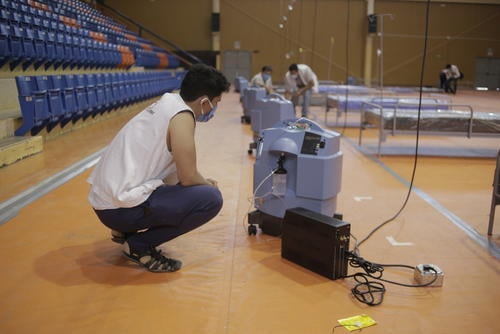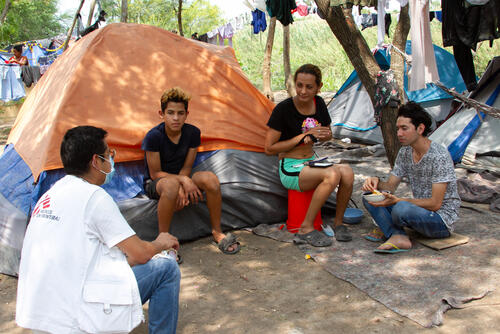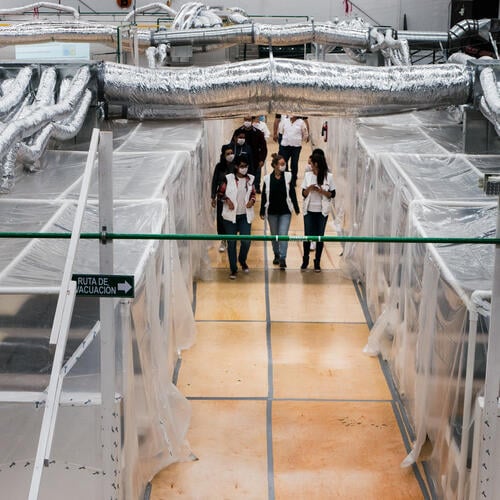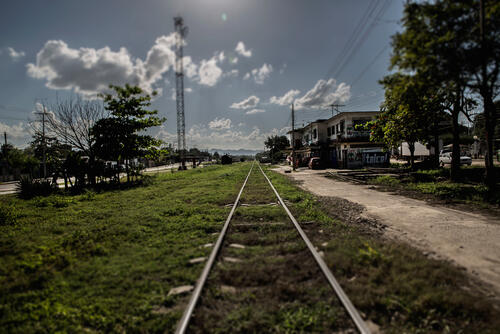Médecins Sans Frontières (MSF) has opened COVID-19 treatment centres in Reynosa and Matamoros, in far northeastern Mexico, in coordination with the local health authorities, to help prevent their health systems from becoming overwhelmed. The two centres are housed in Tamaulipas State University basketball gymnasiums.
An isolation area has been established inside the COVID-19 centre in Reynosa for people who have been deported from the United States and are suspected of carrying the new coronavirus. In this area, returnees will have a safe space to be quarantined until our team confirm they do not have COVID-19 or they fully recover from the virus. The centre in Matamoros has been set up to care for patients with mild cases of COVID-19, who do not have the option of isolating at home.
Both facilities have 20 beds and oxygen concentrators to care for patients with severe symptoms. The centres will be managed by MSF health staff 24 hours a day throughout the week.
In addition to medical and nursing teams, both centres will also have staff trained in mental health, health promotion and social work to guarantee comprehensive healthcare services for patients and their families. They will provide services over the telephone to patients and in person with their families in a safe zone.
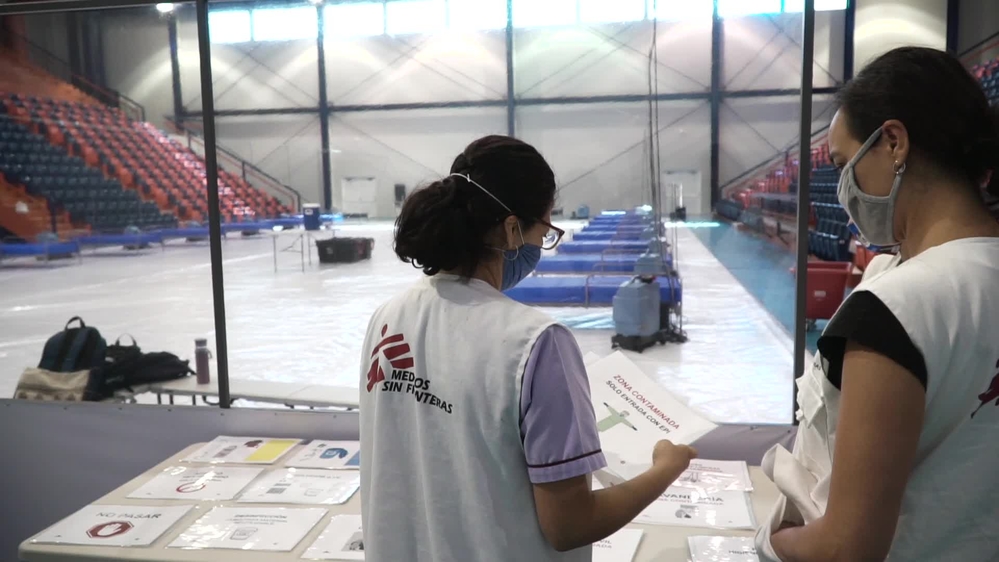
MSF opens COVID-19 treatment centres in Tamauilpas state
“For MSF, safety is a priority and this project is no exception. We have ensured that our teams have all the necessary protection equipment and all staff have had training, so they know how to use it in a proper way,” says Emma Picasso, MSF project medical referent in Reynosa.
MSF is in direct and constant communication with health authorities in both cities, so they can refer patients to the centres or to refer them in case they present a complication.
“We are here with the objective to help people cope with a complex and difficult situation,” says Citlali Barba, MSF project medical referent in Matamoros. “We are going to offer them dignified and humane treatment, and the adequate medical care based on the experience MSF can provide.
Alongside the COVID-19 treatment centres, MSF will continue to provide comprehensive healthcare to migrants, asylum seekers and victims of violence in Matamoros and Reynosa. As an additional service, MSF has also opened a phone line to provide mental healthcare to survivors of violence and people who have suffered emotional traumas as a result of the pandemic.
MSF has been providing comprehensive healthcare for survivors of violence in Reynosa since 2017. In 2018, MSF started providing healthcare to asylum seekers and returnees in Matamoros. In 2019, MSF performed 7,987 medical, psychological or social work consultations across both cities.



